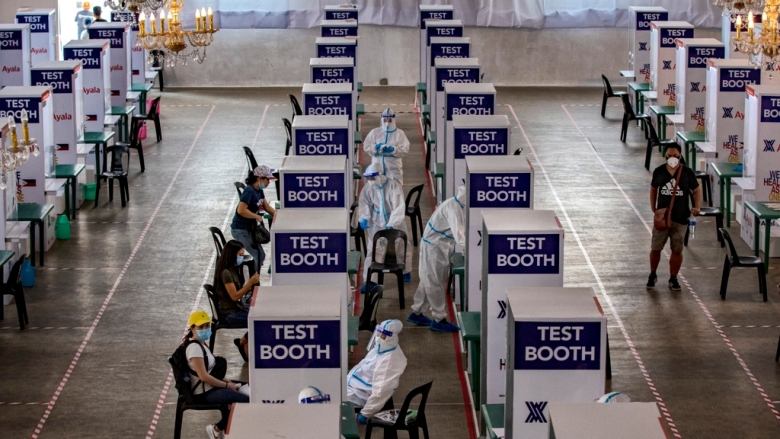COVID-19 is not only requiring countries to respond to the way they deliver health services during the immediate crisis, but it will also impact the fiscal space for health around the world for some time to come with a forecast of 5.2% contraction in global GDP in 2020. The disease is expected to result in a deep global economic contraction, surpassing in severity the previous global and regional financial crises of 2008–2009 and 1997–1998. Almost all countries are projected to see some slowdown in economic growth in 2020, regardless of the extent to which the coronavirus has spread within their borders.
The extent and severity of the impact on health spending remains uncertain and needs to be understood. To this end, the World Bank is utilizing MDTF funds, in partnership with the Global Fund, International Monetary Fund (IMF), World Health Organization (WHO) and Joint Learning Network (JLN) to analyze the in the medium term. Key areas being studied are the macro-economic context, public finance context, and the impact on public financing for health and health funding prioritization.
Preliminary estimates for East Asian economies and Pacific Island Countries show a significant economic shock in 2020, with regional growth projected to fall to 0.5% with a deep impact expected in Thailand, Timor-Leste, Palau, Fiji, and Samoa—just to name a few countries. “The pandemic will likely slow potential growth in the region by weakening investment and the supply chains that have been an important conduit for productivity gains over the last decade,” says the new World Bank report Pandemic, Recession: the Global Economy in Crisis, which assesses the global economic outlook following COVID-19.
